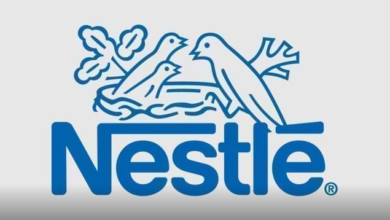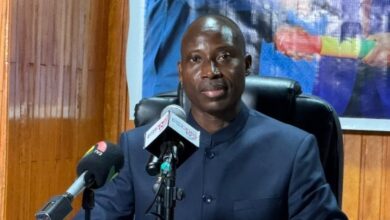S&P Upgrades Ghana’s Credit Rating, Reflecting Strong Economic Recovery

Confidence in Ghana’s economy is on the rise after international ratings agency S&P Global Ratings upgraded the country’s credit score from CCC+ to B-.
The announcement on November 7, 2025, also raised Ghana’s short-term rating to B with a “stable” outlook, signaling that the agency expects the country’s recovery efforts to continue on track. This is Ghana’s highest rating since its 2022 debt default and reflects what S&P describes as “gradually strengthening balance of payments and fiscal positions”—in other words, the country is earning and managing money more effectively.
What the Upgrade Means
A higher credit rating signals to the world that Ghana is becoming a safer place to lend money. This could allow the country to borrow at lower interest rates and attract more investment.
S&P highlights several factors behind the upgrade: a resilient economy, sharply reduced inflation, and strong export earnings—particularly from gold and cocoa, which together account for over 60% of Ghana’s goods exports. Foreign reserves are expected to rise from $6.8 billion in 2024 to $10.4 billion by the end of 2025.
Reforms Driving Confidence
The rating also reflects confidence in Ghana’s new government, sworn in January 2025. The administration has introduced spending rules to prevent overspending—a chronic problem for past governments.
A key policy mandates a primary budget surplus of at least 1.5% of GDP annually. This ensures that Ghana earns more than it spends, excluding debt payments, with a target to reduce public debt to around 45% of GDP by 2034.
Inflation, which exceeded 20% at the start of 2025, has fallen below 10%, while the cedi has strengthened nearly 30% against the U.S. dollar.
Progress on Debt Restructuring
Ghana’s progress in addressing its debt burden also contributed to the upgrade. Following local debt exchanges in 2023 and restructuring $13.1 billion in Eurobonds in 2024, the government is now negotiating the final $5 billion owed to select official and commercial creditors.
However, S&P notes ongoing disputes with some lenders, including the African Export-Import Bank and the Eastern and Southern African Trade and Development Bank, as well as commercial notes intended to fund the health sector. These disagreements could delay the full completion of Ghana’s debt restructuring.




